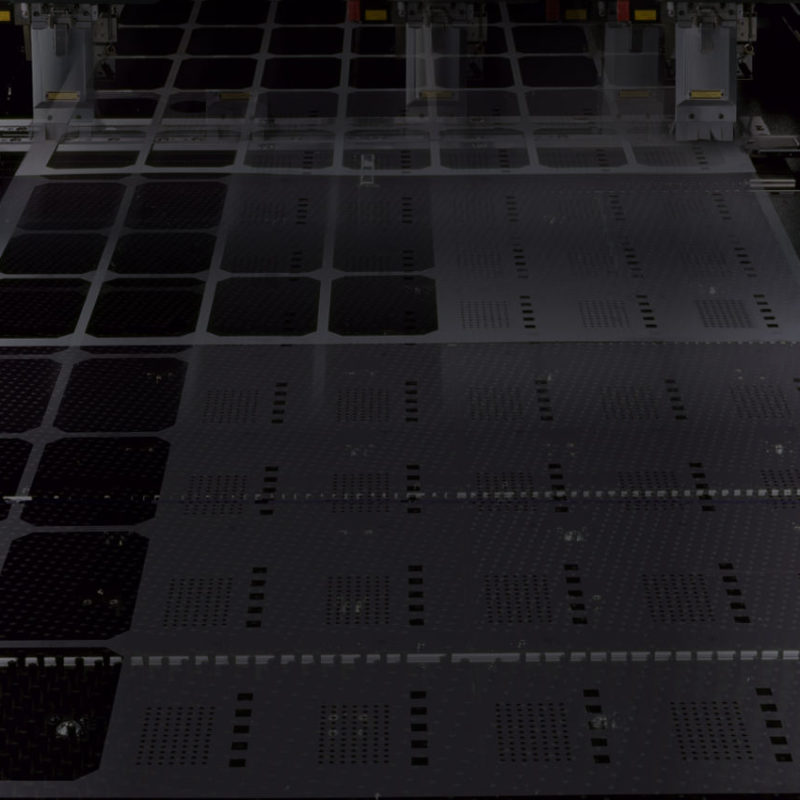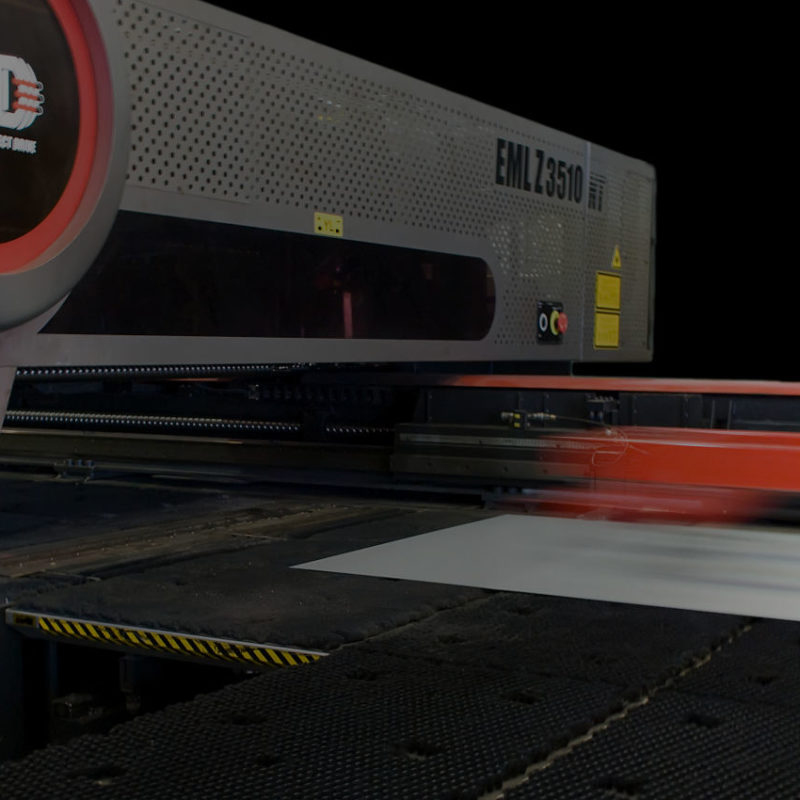Harlow Group
Harlow Group is one of the leading UK manufacturers of precision sheet metal components, products and electro-mechanical assemblies.
Harlow Group is one of the leading UK manufacturers of precision sheet metal components, products and electro-mechanical assemblies.
From its origins back to 1975 the £7m company has steadily grown and currently has a workforce of 100 producing a diverse range of products across many sectors with a recognised specialism within the aerospace industry. Harlow’s reliance on the EFACS ERP system from Exel Computer Systems goes back almost as long, with Managing Director Bill Timpson describing EFACS as long having been “the brains of the organisation.”
Like most established metal fabricators, Harlow has had to adapt as a business to meet changing customer requirements and highly variable market and economic conditions. As such the company currently exports 20% of its output to Mexico with a further 20% dedicated to the aerospace sector. Approximately 80% of all business comes from around 10 major clients, some of which have been customers for several decades, with the remaining 20% being comprised of over 20 smaller and newer customers. Batch sizes range from single items through hundreds to thousands and into the tens of thousands and the company can be working on up to 1200 works orders at any given time.
From its origins back to 1975 the £7m company has steadily grown and currently has a workforce of 100 producing a diverse range of products across many sectors with a recognised specialism within the aerospace industry. Harlow’s reliance on the EFACS ERP system from Exel Computer Systems goes back almost as long, with Managing Director Bill Timpson describing EFACS as long having been “the brains of the organisation.”
Like most established metal fabricators, Harlow has had to adapt as a business to meet changing customer requirements and highly variable market and economic conditions. As such the company currently exports 20% of its output to Mexico with a further 20% dedicated to the aerospace sector. Approximately 80% of all business comes from around 10 major clients, some of which have been customers for several decades, with the remaining 20% being comprised of over 20 smaller and newer customers. Batch sizes range from single items through hundreds to thousands and into the tens of thousands and the company can be working on up to 1200 works orders at any given time.
Dave Carlisle has been with Harlow for over 20 years and IT Manager for the last 5 years and explains how the company used to meet these challenges prior to implementing EFACS, almost 2 decades ago. “The company was a lot smaller and as such was using a basic MRP system called Micross supported by a bespoke Sales Order Processing program. As the company grew and its operations became more complex, the limitations of this approach became increasingly clear which led to our investigation of the fully integrated ERP, EFACS.”
Harlow also has to deal with the ordinary production and business issues shared by most other manufacturing companies – namely maximising production capacity, minimising sequence dependent changeovers, avoiding bottlenecks and ensuring smoothness of flow across the business. The latter is assisted by the company not working on a 24×7 basis which allows it to expand its production times as and when required in order for the customer to get their order on time. And as Timpson adds, “Customers are demanding shorter lead time and smaller batch requirements, which means the manufacturing facility has to be flexible to demand and reduce set up times to ensure smooth running of production.


Arguably one of the greatest strengths of Harlow’s investment in EFACS has been its longevity and the way it has both enabled the company to grow, expand and adapt to ever changing business pressures. The way that Harlow uses EFACS today is a genuine example of the long term evolution of ERP and business processes working in harmony with every area of the business being covered by EFACS – from quotations, estimates and sales through to purchasing, stock control, planning, production and ultimately despatch.
Two areas that Timpson is especially pleased with are Document Management and Shop Floor Data Capture (SFDC). The former is a relatively recent introduction and allows not just the internal CAD/CAM drawings and associated documentation to be readily available within EFACS at every stage within the company but streamlines all documentation associated with an order throughout the entire order lifecycle. “We now handle the vast majority of internal documents electronically thanks to EFACS and this has extended to our interaction with our suppliers and customers. So much so that we estimate an 80% improvement in document management efficiency thanks to the latest version which has directly led to our cancelling our contract for physical post.”
SFDC on the other hand is something Harlow has long recognised the value of having utilised it with its UNIX-based EFACS system for over 10 years. Again, the move to the latest version of EFACS has added to the benefits and efficiencies already enjoyed, especially in the amount and accuracy of data that can now be captured. This is especially invaluable for keeping track of so many works orders and providing not just tactical detailed information about a particular job but providing a comprehensive company-wide snapshot of what is happening and where in real time.
In fact, this is one area that both Timpson and Carlisle are keen to develop further because of the additional efficiency savings they foresee it bringing the company. “Margin checks become increasingly important in competitive markets” explains Timpson.
He continues, “We are now using the improved SFDC within EFACS to compare our real world margins with projected or estimated margins. This gives us real business intelligence to identify those jobs that are efficient or those that need value engineering activities to reduce cost or make more productive. It would be fair to say that Harlow already has long since had its EFACS system consistently delivering real world benefits across the company. Reflecting on this Timpson remarks, “In many ways the very fact we take it so much for granted says a lot about how integral it is to our business. In fact, when you stop to think about it, EFACS impacts not just the day to day running of the company but also the strategic direction of the business itself.” He goes on to explain, “Every business decision is based on hard factual data and every bit of data comes from EFACS. For example, we are currently in the process of evaluating a new piece of plant equipment and comparing it against past metrics. Those metrics come from EFACS. The new performance data will also be captured and measured by EFACS so EFACS will be a critical tool for deciding whether we will get the required Return on Investment (ROI).”
Further evidence of the ongoing evolution of Harlow’s use of EFACS is shown by the company’s strategy of revisiting existing processes and how they are handled by EFACS. Timpson again, “As EFACS evolves it offers us opportunities that were not possible in earlier versions. This allows us to assess whether we can improve our processes to capitalise on our new potential and if so, we will do so.” It’s no wonder that he once again refers to EFACS as the “brains of the company” before concluding, “even if one of our CNC machines went down, we’d cope, we’d find a way around it, we’d have options. If for whatever reason EFACS stopped, we simply couldn’t function.” An opinion echoed by Carlisle, “People need the right tool to do the right job. For us, EFACS is that tool.”
Contact our team of experts to discuss your business requirements. Our team will discuss how Exel’s ERP & Field Service Management software can benefit your business processes and arrange a product demonstration.
Contact Us